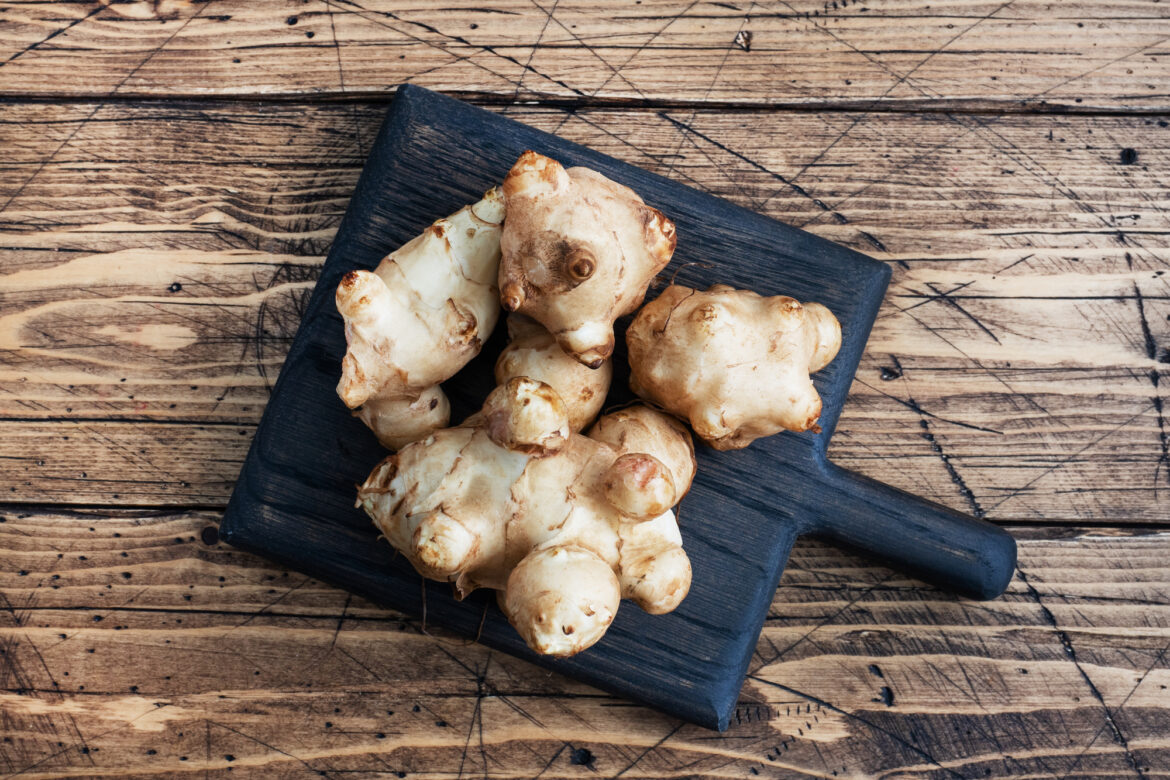Are you actively nurturing your gut health?
Many individuals express a keen interest in gut health for reasons such as dieting or cold prevention. The fact is, around 70% of the body’s immune cells are concentrated in the large intestine, and the gut is the primary site for the production of the “happiness hormone,” serotonin. By ensuring a healthy gut environment, it’s been proven that not only physical health but also mental well-being can be significantly improved, hence the rising focus on gut health in recent years. The most effective strategy to optimize gut health is by consistently including gut-friendly ingredients in your daily meals. Have you ever come across terms like “probiotics” and “prebiotics”? Regular and balanced consumption of these can boost the proliferation of good bacteria and improve your gut health. A food item that has been garnering attention recently is the Jerusalem artichoke. Rich in inulin, a type of dietary fiber categorized as a prebiotic, Jerusalem artichokes are a nutritional powerhouse. Although they might be less familiar, Jerusalem artichokes are packed with nutrients that health-conscious individuals should actively include in their diet. The article will provide a detailed explanation later, so why not consider introducing Jerusalem artichokes into your meals?
Is your gut functioning optimally?
Few among us can assert with confidence, “My gut is functioning perfectly!” It is widely recognized that if the gut environment is not functioning as it should, issues such as constipation or diarrhea can arise. But that’s not all – a poor gut environment can also contribute to skin issues and a weakened immune system. Hence, this section will delve into what constitutes an ideal gut environment, and highlight two key considerations for maintaining gut health.
The Ideal Gut Environment
Our gut is home to more than 1,000 types of bacteria, which can be grouped into the following categories based on their functions:
- Beneficial bacteria: They produce substances like lactic acid to maintain an acidic environment in the gut.
- Harmful bacteria: They produce toxic substances that alkalinize the gut environment.
- Opportunistic bacteria: They align with either beneficial or harmful bacteria, depending on which is more dominant.
The ideal gut environment comprises 20% beneficial bacteria, 10% harmful bacteria, and 70% opportunistic bacteria. When beneficial bacteria outnumber harmful bacteria, opportunistic bacteria will side with the beneficial bacteria, helping to sustain a healthy gut environment.
Absolutely, here’s a more refined version of your article.
The Importance of Prebiotics and Probiotics
Your gut health plays a crucial role in your overall well-being. To maintain a healthy gut, it’s essential to focus on prebiotics and probiotics, despite their similar sounding names, serve distinct purposes.
Prebiotics: Feeding the Good Bacteria
Prebiotics are substances that foster the growth and activity of beneficial gut bacteria. Key sources include oligosaccharides and dietary fiber. Oligosaccharides, which are short chains of sugar molecules, can be found in foods like garlic, onions, and Jerusalem artichoke. Dietary fiber, especially inulin, reaches the large intestine undigested, where it’s fully utilized by gut bacteria, thus enhancing your gut health.
Probiotics: Introducing Beneficial Bacteria
Probiotics refer to live microorganisms, often called ‘good bacteria’, that can benefit your gut health. A prominent example is the bifidobacteria found in yogurt and other dairy products. These bacteria can improve your gut environment, enhance immunity, and alleviate symptoms like diarrhea or constipation. However, they cannot survive in the gut for long periods, hence the need for regular intake of both prebiotics and probiotics to effectively increase beneficial bacteria.
Spotlight on Inulin: A Superior Prebiotic
For those eager to incorporate prebiotics into their diet, inulin comes highly recommended. Unlike some prebiotics that are only partially used by gut bacteria, inulin is fully utilized, thereby effectively improving your gut environment. Foods rich in inulin include:
| Jerusalem Artichokes | Garlic | Onion | |
| The amounts of inulin contained | 15 – 20% | 9 – 16% | 2~6% |
Jerusalem Artichoke: A Prebiotic Powerhouse
Jerusalem artichoke is known for its high inulin content. Originating from North America, it has been dubbed as the ‘revolutionary food of the 21st century’ in Europe. Its unique attributes, such as low calories and virtually no sugar, make it a perfect choice for health-conscious individuals.
Inulin: Not Just for Gut Health
In addition to fostering a healthy gut, inulin also helps regulate blood sugar levels post-meal, thus aiding in weight management and diabetes prevention. Jerusalem artichoke is also rich in potassium, which assists in alleviating bloating and regulating blood pressure.
Convenient Intake: Jerusalem Artichoke Supplements
For a hassle-free intake of Jerusalem artichoke, consider using supplements. Fresh Jerusalem artichoke can be difficult to store and its availability might be seasonal, making regular consumption challenging. But with supplements, you can reap the benefits of this superfood in a matter of seconds.
In Conclusion
This article provided insights into prebiotics and probiotics, crucial elements for maintaining a healthy gut environment. It’s recommended to include Jerusalem artichoke in your diet, a natural source of inulin which is fully utilized by gut bacteria, along with other health benefits. If preparing fresh Jerusalem artichoke is daunting, consider opting for supplements instead.

